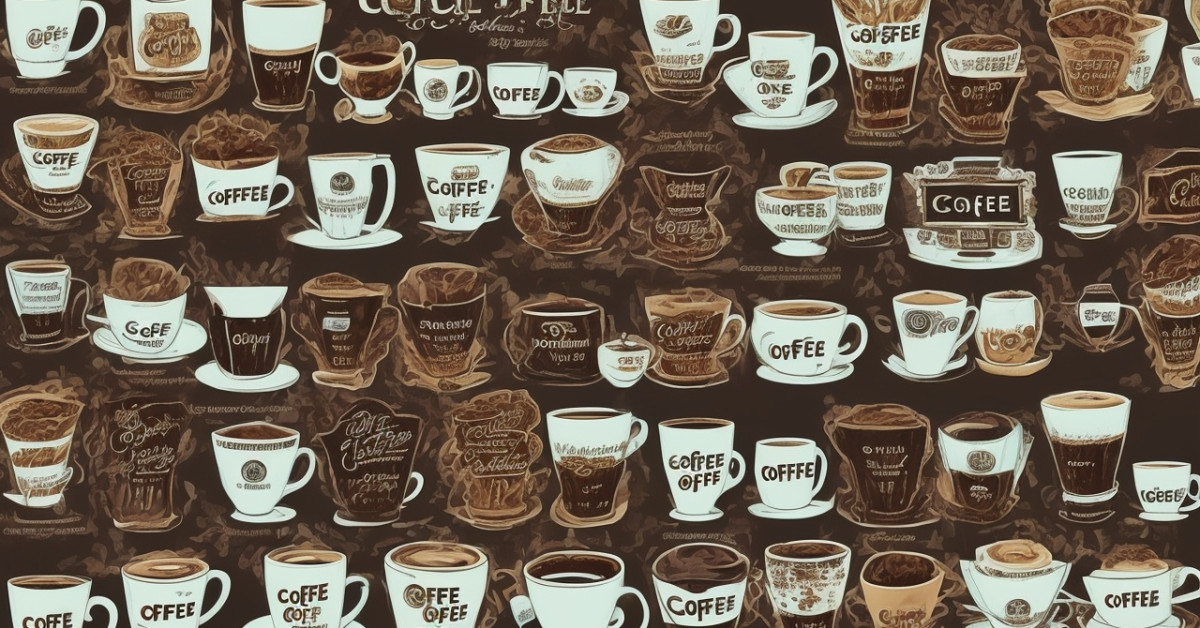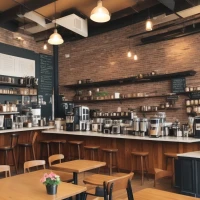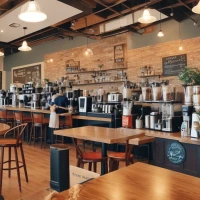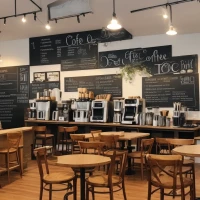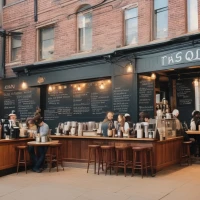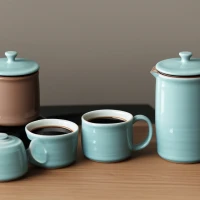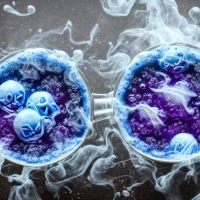Do you yearn to kickstart your mornings with the heartwarming aroma of freshly brewed coffee? If you’re someone who enjoys sipping on a robust and flavorful cup or hosting a gathering where coffee is the communal brew, knowing how much coffee to use is the key to perfection. Whether you want to impress guests or treat yourself to a divine coffee experience, mastering the art of measuring coffee for 12 cups is an essential barista skill. In this comprehensive guide, we’ll take you through the intricacies of dosing, grinding, and brewing, ensuring that you strike gold with perfect brews every time.
Coffee enthusiasts and aficionados understand that the journey to a flawless cup is one of precision and attention to detail. The taste, strength, and quality of your brew hinge on various factors, including the quantity of coffee you use. So, let’s dive into the world of coffee measurements and unlock the secrets to preparing impeccable cups that delight the senses.
Measuring Mastery: The Coffee Connoisseur’s Formula
The Coffee-to-Water Ratio: The Heart of Your Brew
The ratio of coffee to water is the cornerstone of a great brew. The standard recommendation for a balanced cup suggests using 1 to 2 tablespoons of ground coffee for every 6 ounces of water. However, when preparing 12 cups, the collective palate of your audience may call for a slight adjustment to this ratio.
Related article; best coffee shops in raleigh
To cater to the preferences of coffee lovers, here are the guidelines to follow:
Related article; best coffee shops in pittsburgh
- For a milder brew: a ratio of 1 tablespoon of coffee per 8 ounces of water.
- For a richer, more robust flavor: 2 tablespoons per 6 ounces of water.
Translate these ratios into measurements for 12 cups, factoring in that a standard coffee cup is usually 6 ounces.
Related article; best coffee shops in philadelphia
Understanding Your Coffee Maker’s Cup Definition
Brewer cup sizes can be misleading, as many coffee machines define a cup as 5 ounces instead of the traditional 6 ounces. Prior to measuring your coffee, ensure that you’re clear on your coffee maker’s cup definition to avoid a miscalculated brew.
Related article; best coffee shops in orlando
The Golden Grind: Selecting and Preparing Your Beans
Whole Beans vs. Ground Coffee: Texture’s Role in Flavor Extraction
The grind size of your coffee beans greatly influences the extraction rate and thus, the overall taste of your coffee. Whole beans that are freshly ground before brewing generally yield a more aromatic and flavorful cup. However, if convenience is your priority, a uniform pre-ground coffee could save time while still delivering a satisfying cup.
Related article; best coffee mug warmer
Best Practices for Grinding Coffee
Do you want to unlock the beans’ full potential? Here are some tips:
Related article; best coffee charleston
- For optimal freshness: grind your beans just before brewing.
- For consistency: use a burr grinder rather than a blade grinder.
- Grind size matters: for most drip coffee makers, a medium grind is ideal.
Remember, the grind size should complement your brewing method to avoid over or under-extraction, which can lead to a bitter or weak cup of coffee.
Related article; best place for coffee in seattle
Precise and Propitious: Measuring for 12 Cups
Now, let’s talk specifics. To prepare 12 cups of coffee using the standard 6-ounce cup measurement, you’ll need approximately 72 ounces of water. Here’s how to measure the coffee accordingly:
Related article; best flavored coffee
- For a mild taste: 72 ÷ 8 = 9 tablespoons of coffee.
- For a strong brew: (72 ÷ 6) x 2 = 24 tablespoons of coffee.
Convert tablespoons to grams for greater precision, keeping in mind that a tablespoon of ground coffee is roughly 5 grams:
- Mild ratio in grams: 9 tbsp x 5g = 45 grams of coffee.
- Strong ratio in grams: 24 tbsp x 5g = 120 grams of coffee.
Take these measurements and adjust based on your coffee maker’s cup definition if necessary.
Brewing Brilliance: The Art of Extraction
The Significance of Water Temperature
To achieve brewing brilliance, water temperature plays a critical role. The ideal temperature for brewing coffee is between 195°F to 205°F. Boiling water can scorch the coffee, while lukewarm water will under-extract, leaving you with a subpar cup.
The Perfect Brew Time for 12 Cups
Brew time is another pivotal factor. A standard coffee machine brews 12 cups in approximately 5 to 10 minutes. However, tweak the brewing time based on your coffee’s grind size and your machine’s particularities to ensure a balanced extraction.
Tips for a Consistent 12-Cup Process
- Rinse your filter: This will remove any paper taste and preheat your brewer.
- Stir the grounds midway: This will encourage even extraction for a smooth taste.
- Clean your equipment regularly: Oils and residue from previous brews can taint your coffee.
Tailoring Your Brew: Tips for Customization
Coffee is a personal experience, and your 12-cup batch may reflect your unique preferences. To customize your brew:
- Experiment with blends: Mix different beans to find your perfect blend.
- Adjust the grind size: Fine-tune the grind for your specific coffee maker and taste.
- Play with brew times: Find the sweet spot that defines your ideal strength.
The Aftermath: Maintenance and Mastery
Successful brewing relies not only on process but also on the care of your coffee maker. After each use, clean all parts that come into contact with coffee grounds and water. Decalcify your machine as recommended to prevent mineral buildup.
Sharing the Joy: Serving 12 Perfect Cups
Preparing for Guests
When hosting, serve your coffee immediately after brewing to capture the peak flavor. If you expect a delay, transfer the coffee to a thermal carafe to keep it hot without overcooking.
Mind the Accompaniments
Coffee’s taste can be enhanced or contrasted by what accompanies it. Whether it’s rich chocolate, a slice of lemon, or a splash of cream, consider the overall sensory experience.
Conclusion: The Compound of Coffee Mastery
The road to becoming a coffee maestro involves understanding proportions, grind coarseness, and brewing intricacies. Measure with precision, grind with purpose, and brew with passion—and you’ll be sure to impress with your 12-cup mastery.
In the end, the art of coffee is a continuous learning process, a pursuit that molds to the contours of your evolving palate. Embrace the journey, and every brewed batch will bring you closer to your personal coffee nirvana.

